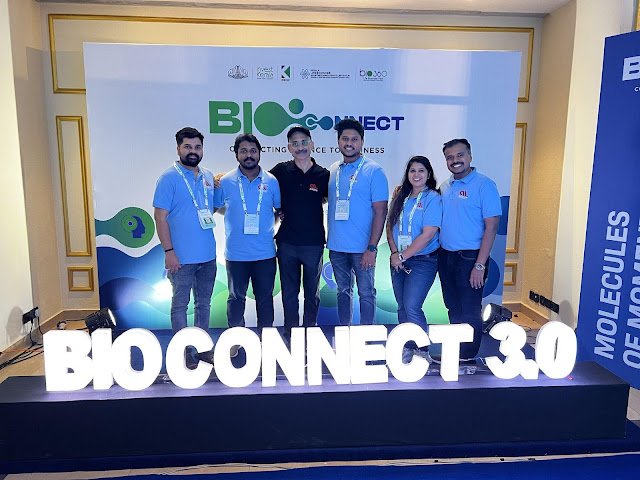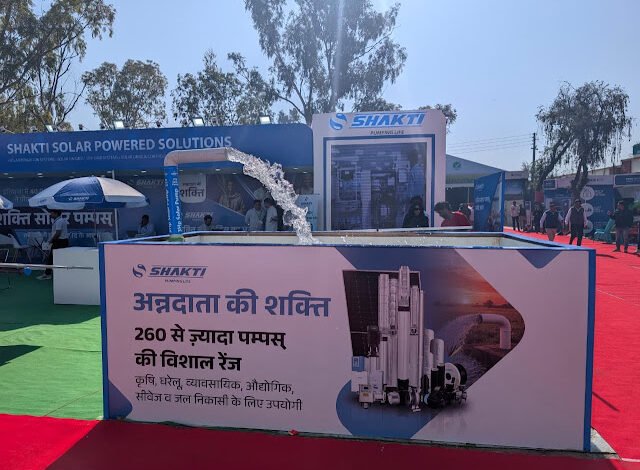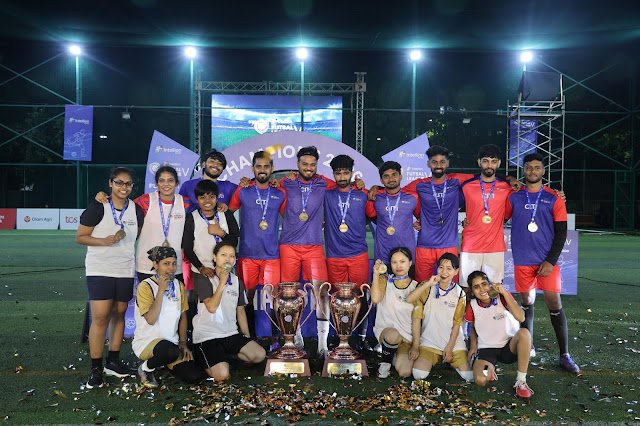
Indian Startup’s Patented Tech Promises Cancer Detection in Just One Breath
Indian deep-tech startup Accubits Invent Pvt
Ltd has secured a patent for its revolutionary
breath-based VOC sensor, marking a major
leap forward in global healthcare innovation. The technology is capable of
detecting diseases like cancer, tuberculosis, and metabolic disorders within
minutes — positions India at the forefront of non-invasive medical diagnostics.
Accubits
Invent’s patented sensor technology, VolTrac, represents a major breakthrough
in non-invasive disease screening. The device analyzes Volatile Organic
Compounds (VOCs) emitted through human breath and sweat — biological markers
that reflect specific metabolic changes in the body. Every disease produces a
distinct VOC signature, and VolTrac sensors can identify these molecular
patterns in under 90 seconds, achieving a lab verified accuracy rate of 98.5%.
They have made the disease screening device using their proprietary sensors.
Founded
by Dr. Nidhin Sreekumar, a chemical engineer, Accubits Invent originated from
research on how plants communicate through VOCs, later translating this understanding
to human biochemistry. Operating from the Bio360 Life Sciences Park in
Thiruvananthapuram, the company integrates biotechnology, artificial
intelligence, and material science to create robust diagnostic platforms.
“VolTrac
works just like a breath analyser — but instead of alcohol, it detects disease”
said Dr. Nidhin Sreekumar, Co-founder and Managing Director of Accubits Invent.
“By enabling early, non-invasive screening, we can save millions of lives and
significantly reduce healthcare costs.”
The scope of VolTrac extends across multiple
domains of healthcare:
●
Early disease screening for conditions such as
cancers, diabetes, liver disorders, neurodegenerative disorders and respiratory
infections.
●
Point-of-care screening in rural or
low-resource settings where traditional lab infrastructure is unavailable.
●
Continuous health monitoring for high-risk
populations and post-treatment recovery assessment.
●
Public health surveillance, enabling rapid
detection of outbreaks through aggregated VOC pattern analysis.
VolTrac
can be deployed in clinics, airports, schools, and telemedicine networks,
making advanced screening accessible at scale.
“India
has immense potential in deep-tech research. Our mission is to harness
technology for the betterment of humanity,” said Dr. Aswathy, Co-founder and
expert in microbiology and formulation science.
The
story of Invent begins with a spark of curiosity inspired by Google’s 2019
April Fool’s “Google Tulip” video, which humorously suggested that plants could
communicate. Instead of laughing, the team at Accubits Invent wondered if this
could be made real — and began developing sensors to detect the volatile
organic compounds (VOCs) that plants emit when under stress. Overcoming the
limits of existing technology, they created an ultra-sensitive chemi-resistive
sensor capable of detecting VOCs at parts-per-trillion levels, a breakthrough
that led to a 2024 patent. This innovation evolved from monitoring plant health
to revolutionizing human diagnostics and environmental safety.
Accubits
Invent has also developed DeTecX, a rapid air-quality and hygiene monitoring
system tailored for hospitals and high-traffic public spaces. DeTecX detects
airborne pathogens and microbial contamination within 15 seconds, issuing
real-time color-coded alerts—green for safe, yellow for caution, and red for
high contamination risk. This technology is designed to tackle
Hospital-Acquired Infections (HAIs), which affect millions globally and often
go underreported.
“Our
goal is to make healthcare environments safer,” said Karthik Chandran, Head of
Operations. “DeTecX continuously monitors air quality and hygiene to prevent
infections before they spread.”
The scope of DeTecX also extends across
multiple domains:
●
Agriculture & Precision Farming- DeTecX enables
early detection of plant stress, pest or disease onset, and real-time
assessment of ripening, perishability, and freshness to enhance crop management
and post-harvest quality.
●
Industrial & Transportation Applications-
DeTecX also enables vehicle cabin air-hygiene monitoring, industrial emissions
tracking, and process safety assurance, with IoT connectivity for centralized
monitoring, predictive maintenance, and regulatory compliance.
Both
VolTrac and DeTecX contribute to a broader vision of preventive, data-driven,
and accessible healthcare. The devices offer:
●
Cost reduction: Eliminating expensive
laboratory procedures and enabling faster turnaround.
●
Early intervention: Identifying diseases in
asymptomatic or early stages, significantly improving outcomes.
●
Epidemiological value: Creating VOC-based
datasets that can inform national disease surveillance and AI-driven predictive
health models.
●
Sustainability: Minimizing biomedical waste
through non-invasive screening.
With
its patent granted in 2024, Accubits Invent is now preparing for clinical
trials and regulatory certification, targeting commercial rollout shortly. Both
products are being developed to be affordably priced and scalable, ensuring
deployment across hospitals, schools, community health centers, and rural
outreach programs.
With
sufficient data points and unique sensor arrays, an universal olfactory system
could be made, which could potentially become a physical AI system, capable of
predicting any potential health issues even before any symptoms arise. This is
our long term vision at Invent.
“We’re
proud to see an Indian innovation poised to transform global health
diagnostics, This is Make in India — for
the world” added Dr. Nidhin.
About Accubits Invent Pvt Ltd
Founded
in 2020, Accubits Invent Pvt Ltd is an Indian deep-tech research company
specializing in VOC-based sensing technologies, biotechnology, and AI-driven
diagnostics. Operating from Bio360 Life Sciences Park, Thiruvananthapuram, the
company’s mission is to pioneer affordable and scalable health technologies
that bridge the gap between scientific discovery and everyday healthcare.



